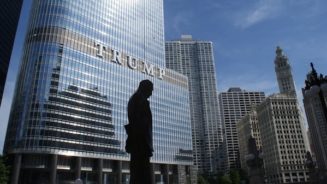At recent forums hosted by sister publication Expert Investor Europe, when we asked fund buyers which asset class was most at risk from the Trump presidency, US equities was the prevailing answer on all occasions.
That’s a drastic turn in sentiment: last autumn, investors were confident US equities would profit from Trump, because of his supposed commitment to Reaganesque tax cuts and increased (infrastructure) investment, and his promise to repeal Obama-era regulations.
Instead, they believed emerging market assets would be hit by Trump’s ‘America First’ policies.
Tremendous failure
It seems Europe’s investors have concluded Trump will be, to put it in his own words, a tremendous failure, succeeding neither in implementing his market-friendly policies nor protectionist measures targeted at the likes of China and Mexico.
This would imply markets will have to correct at some point because they have priced in a rise in profits for US companies, resulting from Trump’s pro-growth, low-tax agenda, that looks increasingly unlikely to materialise.
US equities briefly corrected earlier this month after news broke that Trump has shared highly classified information with the Russians. But they recovered quickly to again trade at a record high by the end of last week.
But did US equities rally from last November because of expectations about Trump’s policies, or were there other catalysts?
Claiming credit
Judging by Trump’s Twitter feed, the rally has been entirely of his doing, though last time he claimed the credits was way back on 2 March.
But many a fund manager will be jealous of Trump’s feel for timing: from 8 November (election day) to 1 March, the S&P 500 gained almost 13%. Since then, it’s up only 1.3% more.
Since November 8th, Election Day, the Stock Market has posted $3.2 trillion in GAINS and consumer confidence is at a 15 year high. Jobs!
— Donald J. Trump (@realDonaldTrump) March 2, 2017
Jaap Bouma, a senior portfolio manager at the Dutch wealth manager Optimix, thinks the name ‘Trump-rally’ cannot be entirely justified.

“I don’t think it’s fair to attribute the whole rally to Trump. His impact is being overestimated,” says Bouma.
According to the Dutchman, improving global growth which should translate in higher profits for companies goes a long way to explain the positive stock market performance.
“We shouldn’t overestimate the impact of politics on markets.”
Raj Shant, a global equity fund manager at Newton Investment Management, believes the Trump rally was misplaced in the first place.
“The first day after the elections, when I got back after Trump had been elected, the market was down 4.5%. Two hours later it was up 2.5%. That was a 7% swing, incredible.”, he says.




